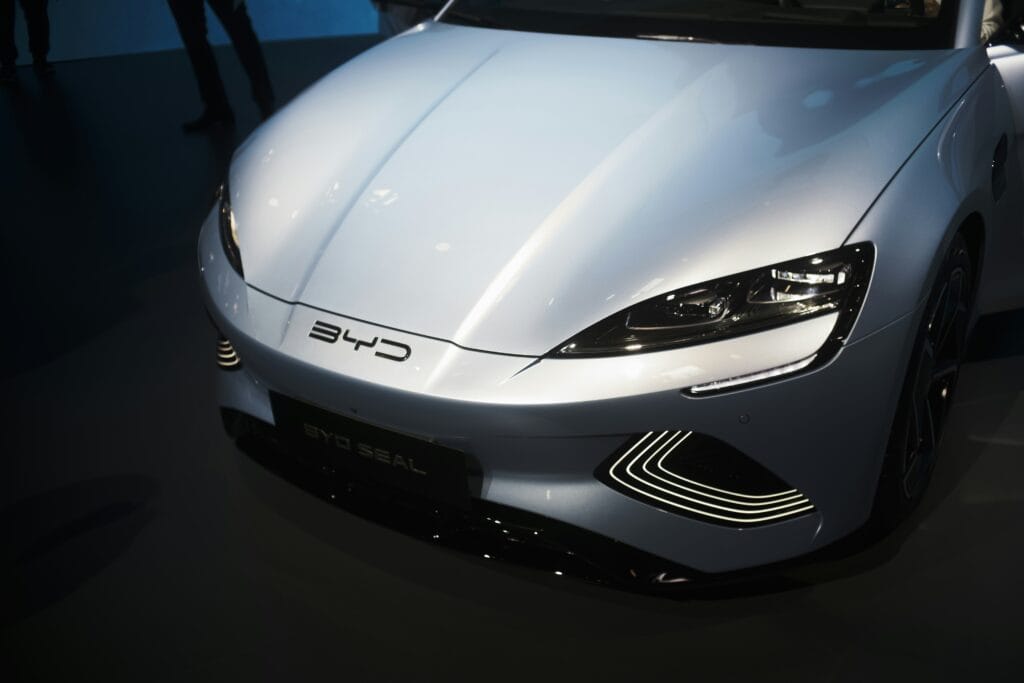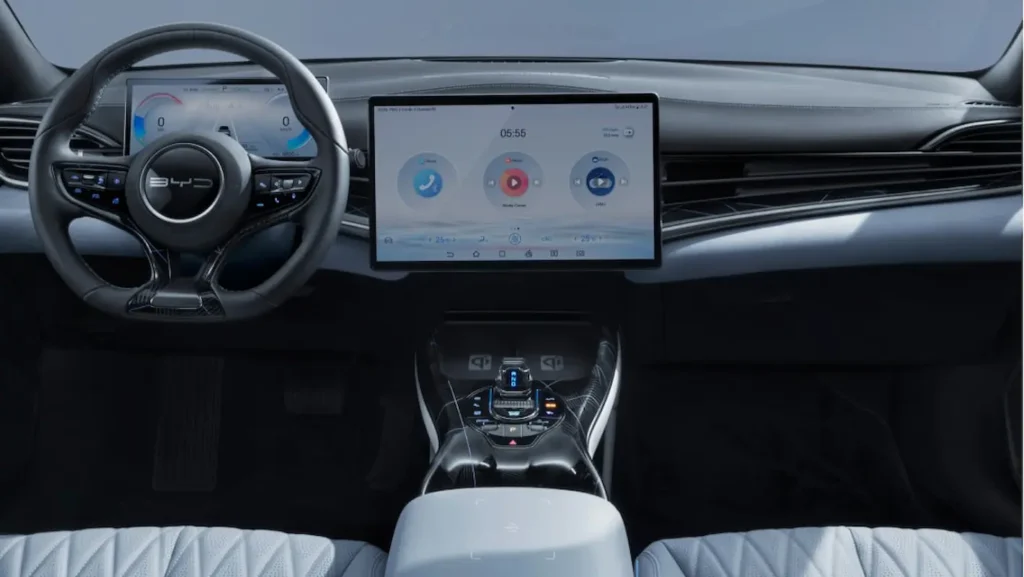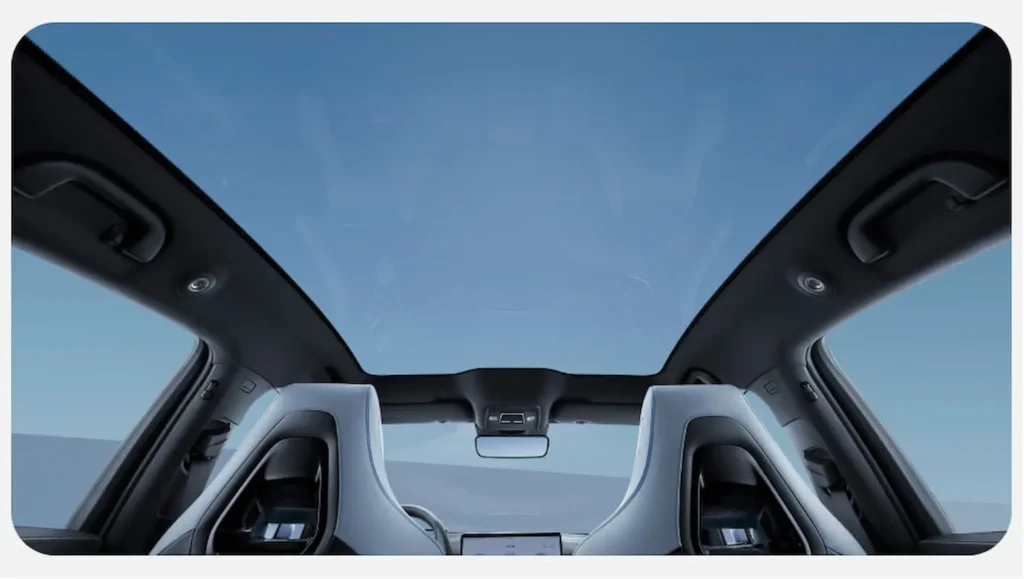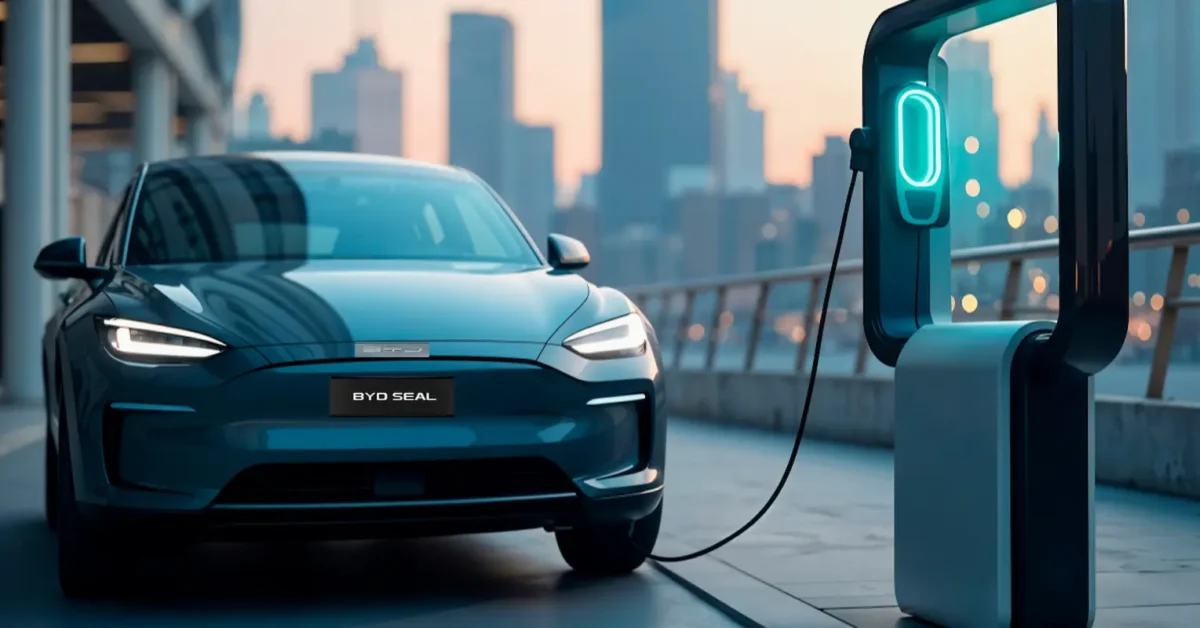BYD Expansion in India
BYD (Build Your Dreams), the world’s leading EV manufacturer, is rapidly expanding its footprint in India’s green mobility landscape. With the rise in demand for both electric vehicles (EVs) and hybrids in 2025, Indian consumers are exploring options that balance performance, fuel efficiency, and environmental responsibility. The BYD Seal Hybrid EV —a plug-in hybrid sedan—has captured significant attention for offering the best of both electric and petrol power.
In 2025, the Indian automotive market is undergoing a pivotal shift—hybrid electric vehicles (HEVs) are emerging as the smart alternative between conventional petrol cars and fully electric vehicles. Leading this charge is BYD (Build Your Dreams), the world’s top-selling EV maker, now setting its sights on India with a versatile hybrid offering: the BYD Seal Hybrid EV.
In this detailed BYD Seal Hybrid EV Review , we’ll explore:
- The expected BYD Seal price in India (2025)
- Key features and specifications
- Real-world mileage performance
- And how it compares to other hybrids and EVs in the same segment
What is the BYD Seal Hybrid EV ?

The BYD Seal is a plug-in hybrid electric vehicle (PHEV) built on BYD’s DM-i (Dual Mode Intelligent) platform. An electric motor paired with a petrol engine, allowing for:
- Electric-only driving for short urban commutes
- Hybrid mode for longer intercity drives
- Regenerative braking to recharge the battery while driving
DM-i vs. Pure EV: What’s the Difference?
| Feature | BYD Seal (Hybrid) | BYD Seal EV (Electric) |
| Powertrain | Petrol + Electric | Electric only |
| Range | 1,000+ km (combined) | 500–700 km (approx.) |
| Charging Requirement | Optional (petrol backup) | Mandatory |
| Running Cost | Moderate | Lowest |
| Price (Estimated) | 28–35 lakhs | 40–45 lakhs |
Why Hybrids Are Ideal for India in 2025:
- Poor charging infrastructure in many cities
- Rising petrol costs
- Range anxiety concerns among new EV buyers
- Low daily commute distances for most Indians
Plug-in Hybrid vs Electric: Pros & Cons for Indian Buyers
Plug-in Hybrid (BYD Seal )
Pros:
- No range anxiety — petrol backup available
- Higher mileage (~30–35 km/l in hybrid mode)
- EV mode for short commutes
- Better suited for areas with limited charging infra
Cons:
- Needs both petrol and charging maintenance
- Slightly complex powertrain
- Government incentives are lower than for pure EVs
Pure Electric (BYD Seal EV)
Pros:
- Zero tailpipe emissions
- Simpler drivetrain and lower running cost
- Full government subsidies (in some states)
Cons:
- High upfront cost
- Longer downtime if battery drains
What is the price of BYD Seal Hybrid EV in India?
- Launch Timeline: Expected in late 2025 or early 2026, depending on regulatory approvals and final localization plans.
- Expected Ex-showroom Price: ₹28–35 Lakhs (approx.)
Price Comparison with Rivals:
| Model | Type | Ex-showroom Price (₹) |
| BYD Seal | PHEV | 28–35 Lakhs (Expected) |
| Toyota Camry Hybrid | Hybrid | 46 Lakhs+ |
| Hyundai Ioniq 6 | Electric | 55 Lakhs+ |
| Honda Accord Hybrid* | Hybrid | 40 Lakhs (Discontinued) |
BYD Seal DM-i Key Features and Specifications
Performance
- Battery Options: Offers two battery pack choices—18.3 kWh and 10.08 kWh—providing buyers with flexible options for extended electric-only range based on driving needs.
- Electric Range: 100–120 km (claimed)
- Engine Output: A 1.5-liter petrol engine seamlessly integrated with an electric motor for efficient hybrid performance.
- Power: Up to 160 kW (~214 bhp)
- Top Speed: ~180 km/h
- 0–100 km/h: ~7.9 seconds (est.)
Transmission & Drive
- E-CVT automatic gearbox
- Multiple drive modes (EV, HEV, Eco, Sport)
Interior and Tech
- Touchscreen: A large 15.6-inch rotatable infotainment screen, similar to the one found in the BYD Atto 3, offering flexible viewing angles.
- ADAS: Equipped with advanced driver-assistance systems (ADAS) including Lane Keep Assist and Adaptive Cruise Control for enhanced safety and semi-autonomous driving.
- Comfort: Leather seats, dual-zone climate control, ambient lighting

Safety
- Airbags: 6–8 airbags (variant-dependent)
- NCAP Rating: Yet to be tested globally
- Additional Safety: 360-degree camera, traction control, ABS

BYD Seal Hybrid EV mileage and fuel efficiency
- Electric-only Range: 100–120 km
- Combined Range (Petrol + Electric): Over 1,000 km on full tank and charge
- Fuel Tank Capacity: ~50 litres (est.)
- Real-world Fuel Efficiency: 20–25 km/l in hybrid mode (est.)
Ideal for:
- Daily commutes under 50 km
- Families needing highway travel flexibility
- Buyers in cities with occasional EV charging access
5 Must-Know Features That Make It Unique
1. Long EV-Only Range for City Driving
Easily covers most daily commutes (~50–70 km) on electric power alone — ideal for urban India.
2. No Range Anxiety on Highways
The hybrid system gives a combined range of 1000+ km, perfect for weekend getaways or intercity travel.
3. Minimal Charging Infrastructure Dependency
Can be charged at home + petrol backup = zero fear during power cuts or rural travel.
4. Smart Infotainment with 4G+OTA Updates
12.8″ rotatable touchscreen with DiLink OS, voice controls, and real-time vehicle stats.
5. ADAS & Safety Pack
Equipped with advanced safety tech such as Adaptive Cruise Control, Lane Keep Assist, Emergency Braking, six airbags, and a 360-degree surround view camera for enhanced driver assistance and protection.
Is the BYD Seal Hybrid EV Practical for Indian Roads?
Yes, and here’s why:
- Ground Clearance: ~150 mm (adequate for urban driving)
- Suspension: Tuned for comfort with MacPherson strut & independent rear
- Real-World Range: Hybrid mode helps maintain mileage in stop-and-go traffic
- EV-Only Mode: Great for Delhi-NCR, Mumbai, Bengaluru traffic — cuts fuel cost + emissions
BYD Seal vs Toyota Camry Hybrid (India Comparison)
| Feature | BYD Seal | Toyota Camry Hybrid |
| Powertrain | PHEV (EV + Petrol) | Strong Hybrid (Self-charging) |
| EV Range | ~80–120 km | 0 km (No EV-only) |
| Price (Expected) | ₹30–35 L | ₹46.17 L |
| Fuel Efficiency | ~30 km/l (Hybrid mode) | ~22 km/l |
| Fast Charging | AC Only (Slow) | No |
| Verdict | Better daily savings + EV feel | Proven reliability |
Frequently Asked Questions (FAQs)
1. How is the BYD Seal Hybrid EV different from a fully electric vehicle (EV)?
The BYD Seal uses a plug-in hybrid powertrain (DM-i platform) that combines a petrol engine with an electric motor. Unlike a pure EV, it does not rely solely on electric charging and can switch to petrol power, offering flexibility for long-distance travel and regions with limited charging infrastructure.
2. What is the mileage of the BYD Seal in Indian driving conditions?
The BYD Seal is expected to offer a combined mileage of 25–30 km/l (claimed), with an electric-only range of 100–120 km on a full charge. This makes it ideal for daily city commutes with minimal fuel usage, especially in traffic-heavy Indian cities.
3. Is the BYD Seal better than Toyota Camry Hybrid or Hyundai Ioniq 6?
While the Toyota Camry Hybrid is well-established in India, the BYD Seal may offer a higher electric range, more advanced tech features, and competitive pricing. Compared to the Hyundai Ioniq 6 (a full EV), the Seal provides greater flexibility with its petrol + electric hybrid system, appealing to those worried about charging infrastructure.
Conclusion: Should You Wait for the BYD Seal ?
If you’re looking for a smart mix of electric efficiency and petrol flexibility, the BYD Seal hybrid makes a compelling case. It’s built for the realities of Indian roads, where full EV adoption may still be a few years away for many.
With expected pricing around ₹30 lakhs and electric-only range suitable for most city drives, it may emerge as one of the best family hybrids in India. Stay tuned for its official launch!
Planning to buy a hybrid in 2025? Bookmark this page or share it with someone who’s comparing hybrid vs EV options!

